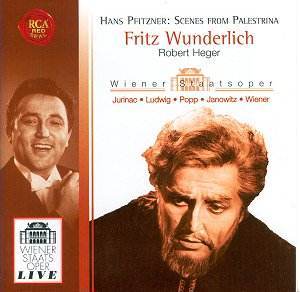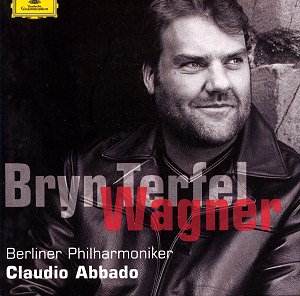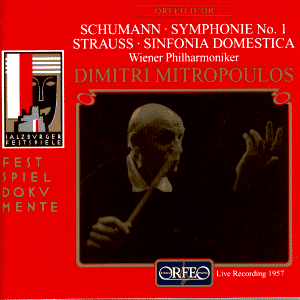 Composer: Hans Pfitzner
Composer: Hans Pfitzner
Works: Palestrina – Excerpts from Act One and Act Three
Performers: Fritz Wunderlich (tenor), Sena Jurinac (soprano), Christa Ludwig (contralto), Otto Wiener (baritone), Mimi Coertse (soprano), Lucia Popp (soprano), Gundula Janowitz (soprano), Hilde Rössel-Majdan (contralto), Vienna State Opera Chorus, Vienna State Opera Orchestra
Recording: Recorded live by Austrian Radio (ORF) on 16 December 1964
Label: RCA
Hans Pfitzner’s opera Palestrina, composed between 1914 and 1917, occupies a unique niche in the 20th-century operatic landscape, embodying a rich tapestry of late Romanticism intertwined with an earnest devotion to the spiritual and artistic ideals of the Renaissance. The opera, which dramatizes the life of Giovanni Pierluigi da Palestrina, the revered composer of sacred music, contemplates the tension between artistic integrity and the societal pressures of the Catholic Church. This RCA release, a live recording from 1964 featuring the illustrious tenor Fritz Wunderlich, captures a moment of profound musical engagement that resonates deeply with the opera’s themes.
The performance under the baton of Robert Heger presents a formidable orchestral palette, richly textured and sonorous, yet deftly balanced to allow the singers’ voices to emerge with clarity. Heger’s conducting is marked by a keen sensitivity to Pfitzner’s intricate scoring, which oscillates between lush choral passages and intimate solo moments. The Vienna State Opera Orchestra responds with a blend of warmth and precision, particularly evident in the orchestral interludes that frame the vocal lines. The sound quality, characteristic of live recordings of the era, possesses a vibrant immediacy that brings the listener into the heart of the Vienna State Opera, allowing the energy of the performance to permeate the listening experience.
Fritz Wunderlich’s portrayal of Palestrina is nothing short of revelatory. His voice, often described as light and lyrical, transcends such labels in this role, where he navigates the character’s emotional landscape with a compelling depth. The ease with which Wunderlich ascends to the high C is extraordinary, showcasing not only technical prowess but also a profound understanding of Palestrina’s internal conflict. In the duet “Kyrie eleison,” the angelic trio of Coertse, Popp, and Janowitz, alongside Wunderlich, produces a celestial blend, underscoring the ethereal quality of Pfitzner’s choral writing. The precision in their harmonies, coupled with the heartfelt delivery, exemplifies the opera’s thematic exploration of the divine.
Sena Jurinac and Christa Ludwig provide strong support as Ighino and Silla respectively, with Jurinac’s bright, agile soprano complementing Ludwig’s rich contralto tones. Together, they create a dynamic interplay that highlights the dramatic tensions within the narrative. Otto Wiener’s Borromeo is portrayed with gravitas, his baritone resonating with authority. The collective performance exhibits a remarkable cohesion, with each artist contributing to the overall emotional arc of the opera.
The recording, while inevitably limited to excerpts, nonetheless captures the essence of Pfitzner’s vision. It stands as a testament to Wunderlich’s extraordinary talents, particularly when considering the historical skepticism surrounding his suitability for such a demanding role. The legacy of this performance reverberates through the decades, offering a poignant reminder of the tenor’s potential unfulfilled due to his untimely death.
This release joins a pantheon of notable recordings of Palestrina, yet it distinguishes itself through the emotional immediacy of the live performance and the interpretative depth brought forth by its stellar cast. The combination of Wunderlich’s artistry, the orchestral nuances, and the choral brilliance make this an essential listen for those seeking to understand the complexities of Pfitzner’s opera and the artistry of its performers. The recording not only preserves a vital moment in operatic history but also invites listeners to reflect on the timeless interplay between art and faith, encapsulated in the figure of Giovanni Palestrina.



